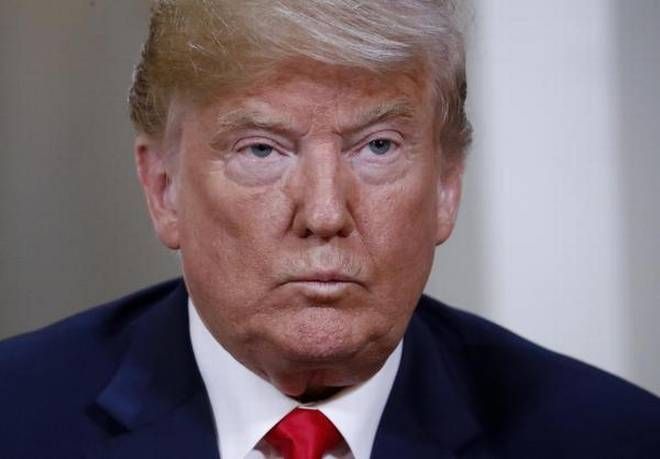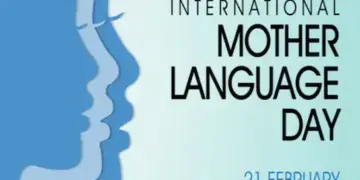By: Ravi Arvind Palat
U.S. President Donald Trump’s incendiary tour of Europe has justly generated extensive coverage for his disregard for diplomatic niceties and attacks on his allies, especially on German Chancellor Angela Merkel and British Prime Minister Theresa May, both of whom are facing stiff domestic opposition. Yet, mainstream commentaries on Mr. Trump’s attacks on the European Union and the North Atlantic Treaty Organization (NATO) do not place the trans-Atlantic relationship in the broader historical context.
In the first instance, in the aftermath of the Second World War, the U.S. promoted economic integration among its European allies as an essential condition for the post-war revival of world trade. At war’s end, wealth had become concentrated in the new superpower — it accounted for 48% of world industrial capacity and 70% of gold reserves. With the demobilisation of some 10 million soldiers in the U.S., the shift to a peacetime economy needed allies to open their markets to U.S. products and investments. Its European allies were too poor to provide a market and the notorious ‘meat-axe’ 80th Congress unwilling to undertake a programme for European reconstruction.
In this context, the U.K. government’s admission in February 1947 that it could no longer intervene in the Greek Civil War provided an opportune moment for U.S. President Harry Truman to follow Senator Arthur Vandenberg’s advice to “scare the hell out of the American people” by manufacturing the Cold War. A Congress that was not willing to aid Clement Attlee’s “socialist welfare state” was eager to rebuild Western Europe and Japan as levees to defend the ‘free world’ against ‘godless communism’.
Along with NATO founded in 1949 was the Marshall Plan instituted in 1948. It was innovative not because of its size — $17 billion over four years was not substantially more than the $9 billion the U.S. had channelled to its European allies in the previous two years — but because it pressured West European states to reduce tariffs between themselves and to standardise regulations to facilitate the creation of a market viable enough to reap the economies of scale and for U.S. corporations to invest in the continent. This trans-Atlantic U.S. corporate expansion was welcomed by European governments and trade unions as these were the only entities with the funds to create employment.
Post-war reconstruction
A trans-Atlantic military alliance and European economic integration were thus the twin projects of a successful post-war reconstruction. Economic integration proceeded rapidly over the last 40 odd years, with the European Union (EU) becoming the largest economy on the planet and thereby threatening the U.S.
At the same time, the rationale for the NATO military alliance — to protect Western Europe from Soviet expansion and to tie Germany to its neighbours — has largely evaporated with the breakup of the USSR and the dissolution of the Warsaw Pact.
The Russian angle
In the context of the current outcry among NATO member states about the Russian annexation of Crimea from the Ukraine, it is important to recall that U.S. President George H.W. Bush and other leaders had assured Russia in 1991 that the trans-Atlantic alliance would not extend beyond East Germany’s borders. Then when Russia was immensely weakened in the 1990s, U.S. President Bill Clinton led the charge to invite states in Central and Eastern Europe into the alliance. It was this expansion that led to a new confrontation with Russia once it had stabilised itself under President Vladimir Putin.
Nevertheless, there is clearly no Russian threat to Europe. Even in the case of the Ukraine, as Steven Cohen, emeritus professor of Russian studies at New York University, has argued, the crisis was precipitated in 2014 when the EU pressured the Ukrainian government to sign an agreement that would have disadvantaged Russia. When then Ukrainian President Viktor Yanukovych hesitated, he was overthrown by EU- and U.S.-supported demonstrators even though he had signed an agreement brokered by three EU foreign ministers the previous day to form a coalition government. It was this march of NATO to the frontiers of Russia that provoked Mr. Putin to intervene in the Ukraine.
Recasting security
Far from Russia posing a threat to the Western alliance, the major source of destabilisation to the EU comes from the flow of migrants from Africa. In this context, it is not higher military spending by member states that is crucial but the provision of aid. Members of the Organisation for Economic Co-operation and Development had pledged to contribute 0.7% of their GDP as aid to the poorest countries. Germany and the U.K. spend 0.66% and 0.7%, respectively, of their GDP in aid while the U.S. spends a mere 0.18%; Mr. Trump is threatening to slash even that by a third. Spending on aid, especially to African countries, will help stem the tide of refugees coming to Europe far more effectively than policing the Mediterranean.
In this context, Mr. Trump’s blistering attack on European states for not meeting their military spending obligations is misplaced. Not only does he fail to recognise that their military spending has risen since 2014 when they agreed to raise their military spending to 2% of their GDP by 2024 but also that European states are not positioned to be global powers. Unlike the U.S. which is bordered by the Atlantic and Pacific Oceans, Europe has no need for navies to patrol distant oceans and match the U.S. in defence spending. Moreover, rather than spending massively on defence as the U.S. has opted to do, European states provide their citizens with health care, education, and other welfare benefits.
Mr. Trump’s support for Brexit and his humiliating undermining of Ms. May, his outrageous comments on Germany being beholden to Russia and on Ms. Merkel in particular, and his alleged offer of a trade deal to French President Emmanuel Macron if France leaves the EU are all designed to break up the organisation so that he can deal from a position of strength with small states. As Britain’s difficulties in exiting the union indicates, supply chains are so integrated across the continent that breaking up the EU would have disastrous consequences for production for all its member states and may even risk a global economic downturn.
In short, what Mr. Trump is seeking to do is to reverse the gains Europe has achieved over the last 70 years and make it beholden once again to the U.S.
Ravi Arvind Palat is a professor of sociology at the State University of New York at Binghamton, U.S.
Courtesy The Hindu






